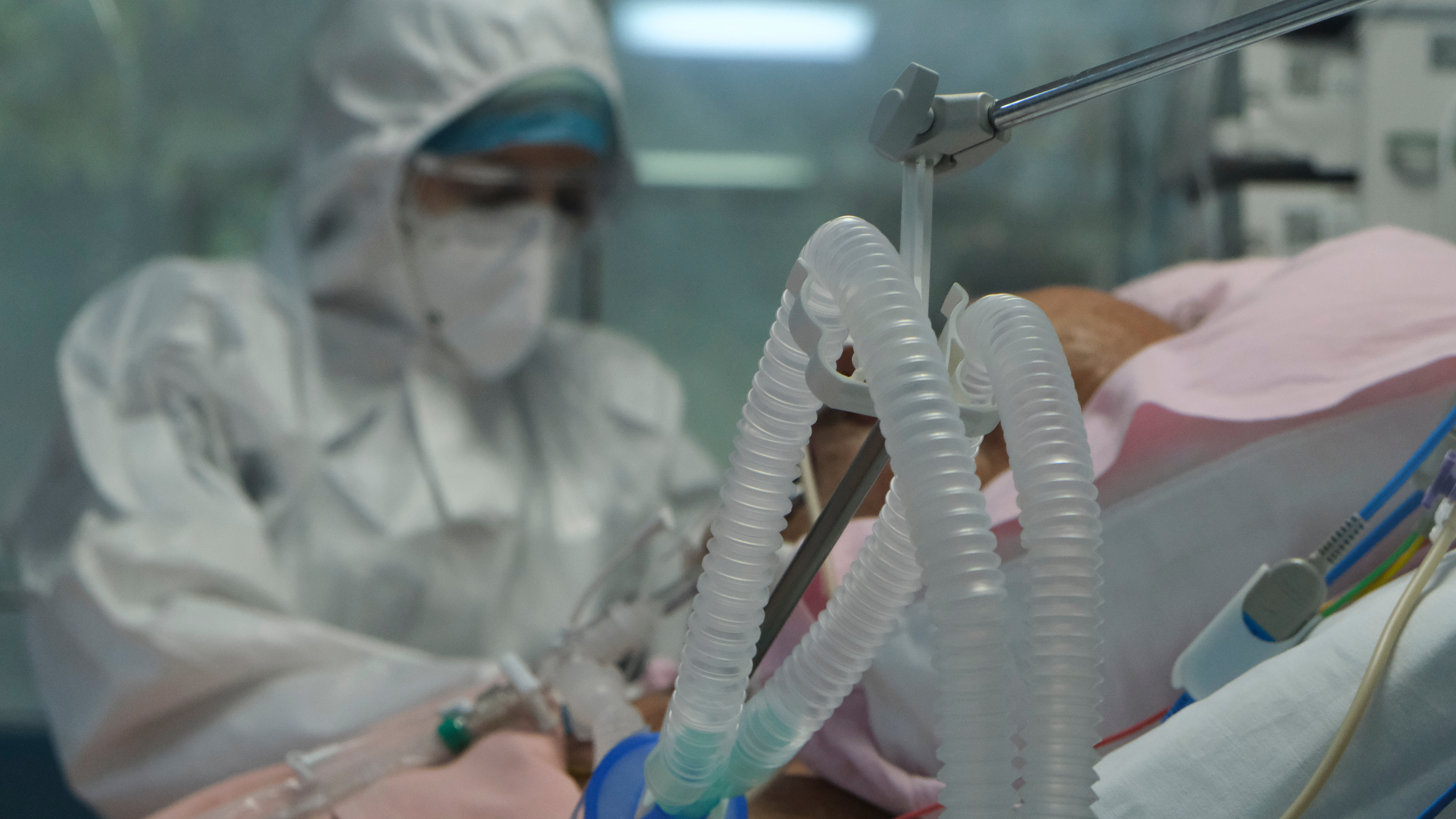
By Samantha Chagollan
I remember how my stomach dropped when you called me that afternoon, July 29, 2020. By then, I knew time was running out, but I will be honest, I was still holding out hope for a miracle.
“How soon can you get here?” you asked, your voice low and filled with firm sympathy. “I don’t think there’s much time left.”
I froze, mid-step in my kitchen. “Soon,” I said. “We just have to finish up a few things and we will be on our way.”
“How soon?” you insisted.
“I’m coming now.” I caught my husband’s eye at the kitchen sink. “She says we have to hurry.”
You had promised me you would be there, the one familiar voice I knew from the many phone calls over the last few days. You, or one of your colleagues, had given me doses of anxiety, hope and anticipation every few hours while I waited helplessly at home to see if my dad would turn the corner.
It was still early in the pandemic then, although it felt so late to all of us at the time. Especially for you and your team, working endless shifts in PPE, going through hand sanitizer like water, eating donated pizza and hospital commissary food when you could spare a moment. This was way back when there was still an appreciation for your dedication, when #healthcareheroes were being celebrated and prayed for.
The hospital lobby and elevators were empty as a ghost town, with no visitors allowed and only essential staff onsite. I had been there with my dad more in the last year than I ever had before, but this time was markedly different.
A young man in scrubs stepped into our elevator just as the doors began to shut, and when he saw we had pressed the button for the fifth floor, he looked at me sadly and then quickly away. I’m sure he knew the only people allowed up to the COVID floor were the ones who were saying goodbye.
There were no signs, no receptionists when we left the elevator, just empty hospital halls that turned and stretched in perpetuity. Each door was sealed with tape and plastic, and there were yellow hazard signs on the front of each door to remind those who entered of the dangerous virus consuming a person inside.
We finally passed a nurse, only her eyes peeking out from her PPE, and I asked her where the nurses’ station was. She walked us over to the charge nurse, a stern middle-aged man with glasses and dark hair, who asked us who we were there for. I said my father’s name and you stood up from behind a screen, blonde hair pulled back in a ponytail, pale yellow gown over your scrubs. You said simply, “I’m so glad you’re here.”
You were so kind. I don’t know how you managed to be, when we were just one family out of so many. You suited us up, asking if the gown was tied too tight and if the gloves were the right size. Then you went in first to get him ready.
You unhooked all of the sensors, one by one, so that the alarms wouldn’t go off when you took off his oxygen. He had restraints on his arms, because the night before, he kept trying to pull the mask off himself. I watched how gently you performed each task, as if he was your loved one too.
You swabbed the morphine lollipop in his mouth, and then stepped back so that we could be close to him. I looked at you to ask if you were leaving, and you said: “No, I’ll stay, if you don’t mind. It won’t be very long now.”
His eyes were closed. His breathing was labored. He was pale and only a wisp of my father.
We played his music. We told him we loved him so much, and that it was okay for him to go. I didn’t know what else to say, so I just kept saying that, over and over and over again. His breathing became even more difficult. He gasped, and his eyes rolled up to the sky. I looked at my husband, holding his hand on the other side of the bed, and he nodded.
I looked to you, and there were tears streaming down your face too. You closed your eyes and looked down at the floor as we let go of his hands and my husband held me while I sobbed.
We had to remove all of the protective gear before leaving the room, and you said quietly, “I’ll meet you outside, I have some papers for you to sign.”
You found us in the fifth floor waiting room, where you brought me a plastic bag of what he was wearing when he was admitted, a release of liability, and a hospital pamphlet on grief and funeral homes.
I tried to find the words to thank you for staying in the room, for helping me understand what was happening, for encouraging me to get here in time. I said lamely: “Thank you for everything you’re doing right now. I can’t imagine how hard it must be.”
You said: “There are good days and not so good days. Today was a terrible day.”
I know I wrote your name down somewhere. I intended to write you a letter, to send you a thank-you gift, to tell your charge nurse how amazing you are. But I got lost in my grief, in the pandemic, in the haze of these strange times.
I hope you are okay. I hope you didn’t get sick, or overworked, or undervalued. I hope you are having less terrible days.